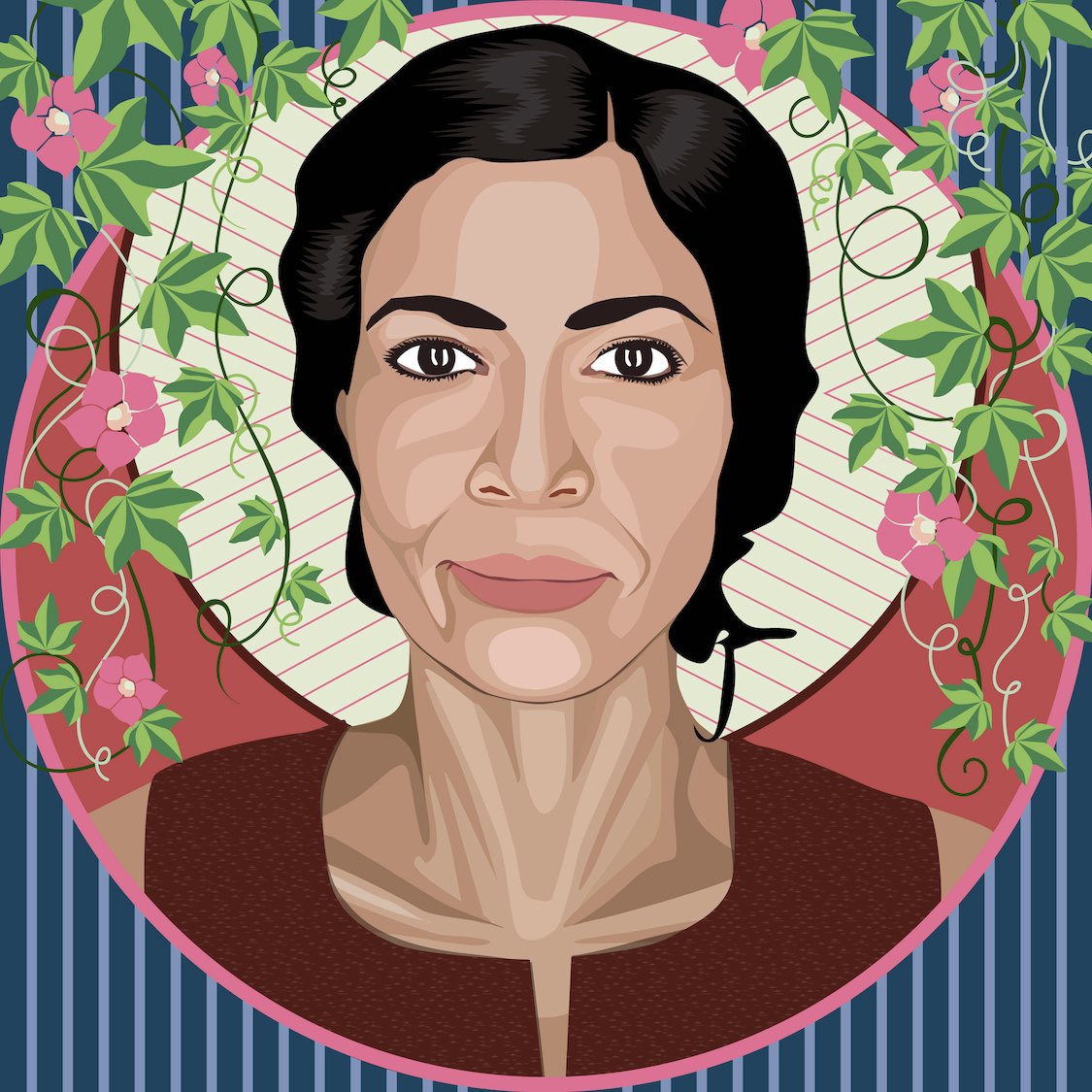Phoebe: Mother of Preachers
Phoebe was a minister or deacon (“diakonos” in Greek), to the church at Cenchreae. She was a woman of means with social connections which gave her the ability to travel and minister to the early Christian community.[1] She is known for bringing Paul’s letter to the Romans which he sent with her to gain him access and welcome into the Roman Christian community for his upcoming visit.
Paul introduces Phoebe as a patron (“prostatis” in Greek), endorsing her as an important member of the church who had given generously and worked hard for its mission. Phoebe is one of ten women mentioned by Paul in the introduction to Romans, all important leaders in the Roman Christian community.[2]
Felicitas: Slave, Mother & Martyr
At this time in history, Chrisitans believed and took very literally imitatio Christi, the idea that Jesus’ words from Matthew 16:24 and Luke 9:23, meant that all those who follow Jesus must take up their crosses to follow him, whatever that entailed.[3] Felicitas and all believers of this time held strongly that to be persecuted and killed as a Christian was to most fully and completely align themselves with Christ. Felicitas’ story links her suffering in labor with her suffering in the arena and connects it to Jesus’ suffering on the cross. The narrator weaves the imagery of motherhood, birth, re-birth and baptism together, reinforcing the power and importance of martyrdom for Christians in the early church.
Perpetua: Prophet, Leader, Mother and Martyr
Perpetua was known as a prophetess and was seen as authoritative in her church community. She regularly experienced vivid, divinely inspired dreams, several of which are recorded in The Martyrdom of Perpetua. In one of her several dreams in prison she saw a tall ladder, an echo of Jacob’s dream in Genesis 28, which stretched from the earth into the heavens. In this dream she trampled the head of a serpent (Echoing Genesis 3), and began to climb, defeating Satan and ascending into heaven. Scholars have pointed out the parallels to Christ in this narrative and the significance of a female represented as Christ-like.[9] She also receives a vision of her martyrdom, instead of beasts coming out to devour her (as was expected), a sorcerer came out (perhaps representing evil), and she immediately transformed into man, pummeled him, and came out victorious. In the same vision, she is “the peaceful daughter who is given the branch of victory, representing the Christian who is freed from society’s expectations of women and men”[10].
Paula of Rome
Paula, although nearly unknown today, can be considered the mother of the best western translation of the bible for one thousand years. She was part of a circle of aristocratic 4th century women who were tired of their lives of gossip and intrigue, so instead put their education and minds to work in the study of Christianity.
Thecla: Fearless Apostle
“The Patron Saint of Women’s Empowerment”, Thecla was an Egyptian woman from a wealthy family in the 1st century. Her story leaves us with a fascinating example of the life of a woman who rejected her life of comfort, marriage and the expected gender norms of her time to carve out her own ministry as a scholar, teacher, preacher, healer and missionary.

The Levite's Concubine
“No one has asked me my point of view, and I have not had the words to speak of it anyway. I left Bethlehem an innocent girl, excited to be grown up enough to be “married,” and go on an adventure to a place I had never been. I had believed the charming words of the man I accompanied. Now I returned to my parents’ house wise to the world, so hurt but also burning with rage and repulsion…”
Mary Magdalene: Apostle to the Apostles
Mary Magdalene was the first to Jesus’ grave, she was the first to see Jesus risen and the first to testify to Jesus’ resurrection.[1] Her life has incredible significance and importance for Chrisitans. Early church fathers as well as Thomas Aquinas are recorded as calling Mary the “apostles of the apostles”, a title that was reinstated by Pope John Paul II in 1988 after her story had been misconstrued with another Mary.[2] It is for this reason that we must tell Mary Magdalene's story and keep re-telling it, until people know it correctly.

Photini: Mother of Evangelists
You may never have heard of Photini, yet you know her story. This is the name the Eastern Orthodox church has given to the Samaritan woman at the well in John 4. The story of Photini is one of the longest stories in the Bible about a woman and it is the longest conversation that Jesus is recorded as having with anyone. We first see Photini’s influence as the Mother of Evangelists in John 4. She is a bold, curious, smart woman, and is a gifted evangelist who is trusted by her people and chosen by God.

Priscilla: Mother of Teachers
Many scholars have defended the fact that Priscilla is the most logical candidate to be the author of the book of Hebrews given her background, education and experience. The reality is, with a close look at scripture and mounting historical evidence, if Priscilla had been male, the book of Hebrews would have been attributed to her long ago.

Junia: Mother of Apostles
Junia’s journey in scripture as the recorded Mother of Apostles is one of caution. We must be wise and stay informed about the interpretation of scripture and the developments in Christian history that have been largely, if not completely, controlled by men. How many more women have been submerged so deeply in history that we have lost a record of them completely?

Spirit: God is our Mother, Too
Maybe you’ve heard rumblings of the Holy Spirit as female or woman. Or maybe this is the first time you’ve ever encountered the idea that God can be feminine at all. Wherever you fall on the spectrum of understanding, rejecting, or embracing the feminine side of God, I want to invite you to ponder the idea of what it means to embrace God as mother while also not rejecting God as father. This article is an invitation into the discussion of God as mother through the person of the Holy Spirit, and how the bible gives us permission to see the feminine of God through the activities, actions and the creation that the Holy Spirit initiates.

Eve: Mother of All Life
One of the greatest evils that our society struggles with today is the oppression of women and girls which has been justified and perpetuated by incorrect interpretations of the Bible. In the story of Eve, the mother of all life, we encounter for the first time a woman whose story has become tainted and obscured in history by misinformed traditional Biblical interpretations and erroneous retellings of too-familiar stories

Miriam: Mother of Prophets
Miriam was a leader to her people equal in importance as Moses and Aaron. She was a controversial woman who regularly exercised courageous love both for her family and for her people. The Bible gives us enough clues about her life to grant us the ability to piece together her story despite centuries of patriarchal interpretations that have attempted to lessen her role in history. What emerges from a close look at scripture is a portrait of a controversially bold woman, who was not only deeply loved, but a woman who loved deeply as an admired leader and prophet.
